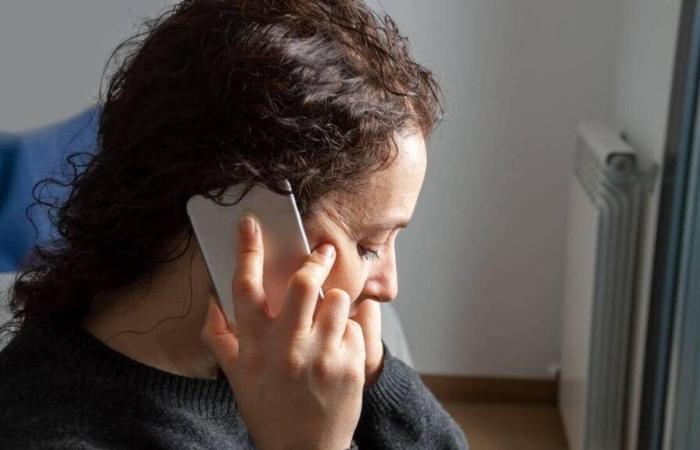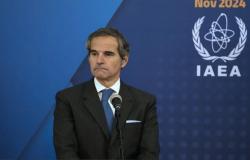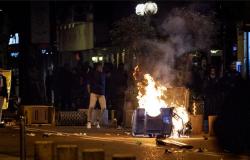Hidden or unhidden calls, offering you the opportunity to change your telephone plan, take out insurance or save energy… Telephone canvassing is a reality experienced by many as a real inconvenience in everyday life.
Despite slightly more regulated practices in recent years, 72% of French people said they received canvassing calls every week, in a survey published in 2023 by UFC-Que Choisir. Still according to this consumer protection association, 97% of French people say they are annoyed by commercial canvassing.
To fight against these calls experienced as harassment, Pierre-Jean Verzelen, senator from Aisne, therefore proposes banning telephone canvassing. While his text will be debated in a public session in the Senate, this Thursday, November 14, 2024, this parliamentarian who sits in the center-right group The Independents – Republic and Territories explains that the rules must be changed to put an end to this subject “became so annoying for everyone.” He says he is optimistic about a favorable vote in the Senate. Interview.
As long as we consider that every French person agrees in principle to be canvassed, it cannot work.
Why this desire to ban cold calling?
I have a phone, a family, friends… And I see, like everyone else, all the problems that canvassing poses with the multiple calls we all receive.
I am also a general advisor and people who have been victims of fraud following calls have come to see me in my office. It's one of those low-profile topics that is part of everyone's daily life, so cold calling caught my attention.
What exactly does your bill contain?
Today, we live in the era ofopt-outwhich means that we start from the principle that every French person is willing to be canvassed. The idea is to reverse the situation and adopt as a principle that every French person is considered to be opposed to being approached by telephone. This is called theopt-in. Each French person will be able to continue to be canvassed but they will have to take the step of registering with the companies which can call them. This makes the consumer an actor since he decides who has the right to call him or not and it puts an end to multiple calls.
Read also : They say “stop” to cold calling: “It’s boring”
So it's not a question of purely and simply prohibiting all canvassing?
I called this law “banning cold calling” so that it would catch people’s minds. But you can obviously always be called if you want.
In recent years, new rules govern telephone canvassing. They limit the time slots for calls and prohibit numbers in 06 and 07. Canvassing is also prohibited for the Personal Training Account and for energy renovation. Why do you think we need to go further by changing this system?
Several things have been done for a long time to organize things, with these dedicated hours, with certain professions where it is prohibited, with the government bloctel system which allows you to register to refuse cold calling. But it doesn't work. Calls tend to increase and this puts the consumer in a position to endure the situation. Companies that did not comply with the rule were not attacked.
Every French person can see that the situation has not improved. We can clearly see that it is getting worse and worse. You are like me, you have a cell phone: have you seen fewer calls for energy renovation? Personally, calls for energy renovation are the ones I hear the most. As for numbers, we are still approached by 06 or 07, despite the rules of 2023. It's the Wild West. As long as we consider that every French person agrees to be canvassed, it cannot work.
Read also : Telephone canvassing: here's how to identify the numbers that can always call you
Today, the economic argument holds much less
Opponents of the ban on canvassing fear the elimination of tens of thousands of jobs. What do you answer them?
I don't deny that there is an economic dimension but we have to make choices: canvassing annoys millions of people, not to mention scams. But cold calling does not help local SMEs who operate mainly through word of mouth. On the other hand, canvassing makes companies work far from us, who do not necessarily finish the work… I have seen many people confronted with poorly finished work or poor workmanship. And more often than not, it started with a phone call.
Concerning the jobs of canvassers, in truth, the business has collapsed. These calls are so restrictive that people no longer pick up, so in the end, the vast majority only remain the weakest, most isolated people who respond… Canvassing is also enormously outsourced in other European countries or in the Maghreb, where labor is cheaper. French platforms deal almost exclusively with commercial relations, and there is no question of going back to that. So canvassing concerns many fewer jobs than some players in the sector claim, by aggregating figures that have nothing to do with each other.
Limiting or prohibiting cold calling is a very popular topic. But do you encounter resistance from certain economic players?
Yes, I definitely had pressure. I myself have been heavily canvassed for a month to explain that I was going to put half of France out of work by banning canvassing. There is a lot of resistance from the insurance professions, the groups responsible for collecting data, the call platform professions… These groups have always won their case until now.
Economic actors who read the term ban may also have been worried. There are people who need to be reassured by explaining to companies that we are not prohibiting commercial relations.
Read also : Four radical techniques to put an end to abusive telephone canvassing
Several projects in this direction have emerged in recent years without ever coming to fruition. Does the situation seem more favorable to you today?
For a long time, this type of law to reverse the situation has always stalled for economic reasons with these fears of job destruction. This argument was very impressive. But since this model no longer really exists, the economic argument holds much less. And each elected official sees that this subject has become so annoying for everyone…
I am hopeful that the law will pass
Do you think this bill has any chance of succeeding?
I'm not the first to bring this up, but I think things are looking good this time. The commission which took place Wednesday morning in the Senate with unanimous votes makes me rather optimistic. The work in committee sought to make this proposal as legislative as possible and a few amendments will make the text even more applicable. During the discussion in this Thursday's session, I am convinced that we will hear speeches from senators who will explain that we are going to destroy jobs, but I think that the text will be voted on. In any case, we have put all the chances on our side for this to happen, I am hopeful.
Will the incessant canvassing finally stop?
Yes, but I want to warn against the disappointing side that such a law may have, if it is voted on this Thursday. The canvassing will not stop the day after the Senate vote. In the event of a positive vote this Thursday, the text will then have to be voted on in the same terms in the National Assembly, then the government will publish a decree… This will obviously take a little time.
Beyond the law, there are also other conditions for it to work. Operators must be able to identify and disconnect calls, even if the calls come from abroad. Above all, the government must bring this new system to life. In Germany, where a system ofopt-in has existed since 2009, calls have been much less numerous for three or four years. This is because the government took up the issue, attacking companies that did not respect the rules. The same will have to be done in France.






